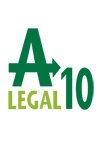Best Real Estate Lawyers in Bree
Share your needs with us, get contacted by law firms.
Free. Takes 2 min.
Free Guide to Hiring a Real Estate Lawyer
List of the best lawyers in Bree, Belgium
About Real Estate Law in Bree, Belgium
Real estate transactions and property rights in Bree are governed by a mix of federal, regional and municipal rules. Bree is in the Flemish Region of Belgium, so many important rules - especially on planning, building permits and registration taxes - are set by the Flemish government and administered locally by the municipality of Bree. Buying, selling, leasing or developing property in Bree normally involves a notary, compliance with spatial planning and building rules, and attention to taxes and local regulations. If you are unfamiliar with Belgian practice, expect formal written contracts in Dutch and mandatory involvement of a notary for transfers of ownership.
Why You May Need a Lawyer
You may need a lawyer or a legally trained adviser for many common real estate situations:
- Purchase or sale of property - to review the purchase agreement, check title, identify liens and advise on tax consequences.
- Mortgage and financing - to understand mortgage terms, prioritisation of charges and consequences of default.
- Leasing - to draft or review commercial and residential leases, and to handle disputes about rent, repairs or eviction.
- Development, renovation or building projects - to advise on planning and environmental permits, contracting and liability.
- Co-ownership and apartment buildings - to advise VME (association of co-owners) rules, bylaws and disputes with a syndicus or other co-owners.
- Disputes - boundary issues, servitudes (easements), construction defects, neighbour conflicts and enforcement of judgments.
- Inheritance and division of property - to manage succession issues, forced heirship rules and partitioning of family property.
A lawyer helps to reduce legal risk, protect your financial interests and ensure compliance with local rules in Bree and the Flemish Region.
Local Laws Overview
Key legal aspects to know for real estate matters in Bree and the Flemish Region include:
- Notarial role and property transfer - Transfers of immovable property are formalised by a notarial deed. The notary performs title checks, draws the deed and ensures registration with the relevant authorities. Buyers should expect the notary to advise on outstanding mortgages or legal encumbrances.
- Registration tax and fees - When ownership is transferred the buyer normally pays a registration tax and notary fees. These rates and rules are set at regional level and can vary depending on whether the property will be your main residence or an investment. Always confirm the current Flemish rules before you buy.
- Planning and building permits - In Flanders an integrated planning and environmental permit is required for many works and new construction. Prior to purchase check the local spatial plan and whether the property is subject to special zoning or protected status. The municipality of Bree enforces local provisions and issues permits.
- Energy performance and environmental obligations - Sellers usually must provide an energy performance certificate when selling or renting. Environmental issues - such as soil contamination or protected landscape status - can affect development and future liabilities.
- Condominium law - If you buy an apartment you enter co-ownership rules requiring a syndicus and compliance with VME decisions. Budgets, major repairs and common costs are governed by Belgian co-ownership law and the property s internal regulations.
- Tenancy law - Residential tenancy rules differ depending on contract type but generally protect tenants with specific notice, deposit and eviction procedures. Commercial lease rules and protections are different and often more negotiable.
- Local taxes - Owners are subject to property-related taxes and municipal additions. Annual property taxes and certain local levies are administered by regional and municipal bodies.
Frequently Asked Questions
How do I start the process of buying a house in Bree?
Begin by defining your budget and financing, then engage a mortgage lender to obtain pre-approval. Have a notary or lawyer perform a pre-purchase title and encumbrance check. Request a copy of the seller s deed, the cadastral information and any relevant building or planning documents. Arrange a technical inspection for structural or hidden defects. Finally, instruct a notary to prepare the sales deed and advise on taxes and registration.
Do I need a notary to transfer real estate in Belgium?
Yes - a notarial deed is required for the valid transfer of immovable property in Belgium. The notary drafts and executes the deed and ensures the transaction is registered. The notary is independent and protects the formal legality of the transaction, although they do not act as a personal legal advocate in the same way a lawyer might.
Who pays the registration tax and how much is it?
Registration tax and notary fees are typically paid by the buyer. Rates are set by regional authorities and can change. There are often reduced rates or exemptions for certain purchases - for example when the property will become the buyer s primary residence and conditions are met. Because rates can be amended, check the current Flemish rules and ask your notary or lawyer for a precise calculation before you sign.
Can a foreigner buy property in Bree?
Yes - non-residents and foreign nationals can buy property in Belgium. Some practical points to consider - mortgage availability may differ, tax and inheritance rules might have cross-border consequences, and official documents and contracts will normally be in Dutch. It is strongly advisable to work with a local notary and a lawyer who can explain translation and tax implications.
What planning or building permissions should I check before buying?
Check whether the property has a valid building permit or an omgevingsvergunning for recent works. Verify that the property complies with local zoning and the municipal spatial plan. If the property is in a protected area or is a listed monument, special rules and restrictions will apply. Your notary or lawyer can obtain official extracts and confirm the permit history.
What must a seller disclose when selling a property?
Sellers are usually required to disclose known defects, existing encumbrances, and relevant permits or absence of permits for works. Sellers must also supply documents such as the energy performance certificate and legal, cadastral and ownership documents. The exact disclosure obligations can be complex, so buyers should rely on legal review before completing the purchase.
What are the main differences between buying a house and an apartment?
Buying an apartment commonly means accepting co-ownership rules and shared responsibility for common parts through a VME. You will be subject to service costs, common budgets and decisions taken by the association of co-owners. A house usually means full private ownership of the building and land, but check for rights of way or servitudes that affect the property.
How are rental disputes handled in Bree?
Rental disputes are usually handled by the Justice of the Peace that has jurisdiction over the area. Residential tenancy law contains specific procedures for termination, deposit disputes and evictions. For commercial leases different rules apply, including contract-specific terms. For any dispute get timely legal advice - eviction and enforcement can take time and require court steps.
What checks should I ask the notary or lawyer to perform?
Ask for a title search to confirm ownership and any mortgages or liens. Request a check of planning and permit history, a review of the cadastral plan and boundaries, verification of taxes due on the property, confirmation of any servitudes and copies of co-ownership documents if applicable. Also ask for a calculation of registration tax and an estimate of notary fees and other costs.
How do I protect myself against hidden defects after purchase?
Arrange a thorough technical inspection prior to purchase and consider contractual warranties in the purchase agreement. Belgian law provides some protection for buyers against hidden defects if they can prove the seller knew of the defect and did not disclose it - but these cases are fact-specific. Inspections, clear contractual clauses and legal advice reduce risk.
Additional Resources
The following types of organisations and offices will be useful when you need more detailed information or official documents:
- Municipality of Bree - local planning, permits and municipal taxes.
- Flemish government departments responsible for spatial planning and housing - for regional rules on permits, zoning and housing policy.
- The local notarial chamber or notary public - for deeds, registration and title searches.
- The Federal or Regional tax administrations - for details about registration taxes and property taxation.
- The Belgian Institute for Real Estate Agents - for regulated estate agents and complaints about agents.
- Tenant and homeowner associations - for common-law guidance on tenancy and housing issues.
- Justice of the Peace in the relevant canton - for landlord-tenant and small claims issues.
Contact these bodies or the relevant local offices in Bree to obtain official extracts, permit records and formal guidance.
Next Steps
If you need legal assistance with a real estate matter in Bree, follow these practical steps:
- Collect documents - title deed, cadastral information, building permits, energy certificate, co-ownership rules and any lease contracts.
- Get a preliminary legal check - arrange a short consultation with a notary or real estate lawyer to identify urgent risks and costs.
- Obtain financing pre-approval - speak with lenders so you know your budget and any mortgage conditions.
- Order technical and environmental inspections - structural reports and, if relevant, soil or environmental checks.
- Request written fee estimates - ask notaries and lawyers for clear quotes for their services and for an estimate of registration taxes and other transaction costs.
- Proceed with formal appointment - instruct a notary to prepare the deed and a lawyer to draft or review contractual clauses if you need bespoke protections.
Real estate transactions are important financial and legal steps. Using local advisers who know Flemish and municipal rules in Bree will save time and reduce risk. If you are unsure at any stage, arrange a professional consultation as early as possible.
Lawzana helps you find the best lawyers and law firms in Bree through a curated and pre-screened list of qualified legal professionals. Our platform offers rankings and detailed profiles of attorneys and law firms, allowing you to compare based on practice areas, including Real Estate, experience, and client feedback.
Each profile includes a description of the firm's areas of practice, client reviews, team members and partners, year of establishment, spoken languages, office locations, contact information, social media presence, and any published articles or resources. Most firms on our platform speak English and are experienced in both local and international legal matters.
Get a quote from top-rated law firms in Bree, Belgium — quickly, securely, and without unnecessary hassle.
Disclaimer:
The information provided on this page is for general informational purposes only and does not constitute legal advice. While we strive to ensure the accuracy and relevance of the content, legal information may change over time, and interpretations of the law can vary. You should always consult with a qualified legal professional for advice specific to your situation.
We disclaim all liability for actions taken or not taken based on the content of this page. If you believe any information is incorrect or outdated, please contact us, and we will review and update it where appropriate.
Browse real estate law firms by service in Bree, Belgium
Bree, Belgium Attorneys in related practice areas.










